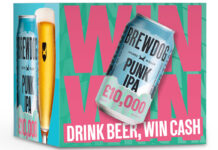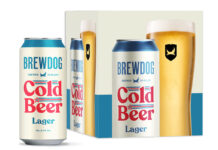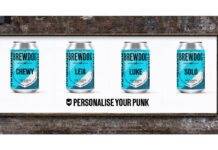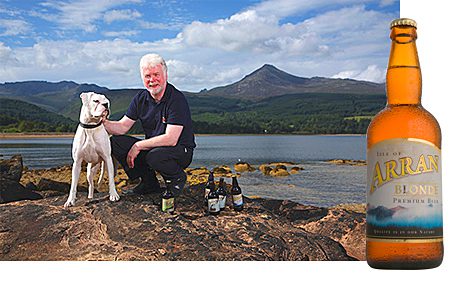
SCOTLAND isn’t short of islands, it isn’t short of brewers. So, perhaps not surprisingly, it isn’t short of island brewers.
At Isle of Arran Brewery Gerald Michaluk, who is also busy developing beer and cider making on the mainland at Loch Earn Brewery, takes delight in the number of beer firms there are now in Scotland, even if it does make for a very competitive and unpredictable market.
“There are well over 70 brewers in Scotland now, so there’s huge choice, it’s very exciting.
“Our sales are up 11%, that’s our off-trade. We’re doing well in independent off-trade, In supermarkets we’re up and down like a yo-yo. They’re trying to expand their range, giving more space to craft beer.”
That’s creating more opportunities, he said but when you add imports and what he regards as lookalike beers based on foreign brews there’s now a very busy market indeed.
In craft ale it’s still light-coloured ales, like his own firm’s Arran Blonde that are selling best. And there’s been a flurry of oak-aged beers also. “Everybody’s having a go.”
So if the supermarkets are so committed to craft, can c-stores compete? And if a c-store is in an area that likes its lager and likes its deals, should it even bother with craft?
Yes on both counts, he says. And there’s a way that c-stores and independent specialists can compete vigorously.
Think local and think different.
“Stock your local brewery’s beers,” he said.
Stock their biggest seller, which might be in the supermarkets and reasonably well-known. But crucially, also stock some of their other beers, the ones people won’t find in the supermarkets.
Ask your local brewers for some sample stock and carry out sampling. If you are in a mainstream chilled lager drinking area you might find many people don’t like the craft alternative. “Some people can’t handle flavour,” he said.
“And they can sometimes be quite rude. But others may like it and come back for it. There’s good margin. You’ll sell a lot more lager but you might make pennies a can. With craft beer you could be making £1 a bottle and making your shop different from others in the area.”
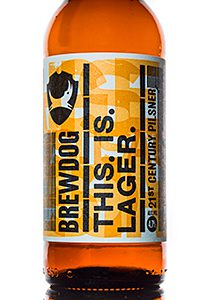
• And talking of lager …
Scottish craft brewer Brewdog is known for expressing an opinion or two. It’s on a mission, says co-founder James Watt, to save a style of beer.
“For years, global breweries have spent millions convincing the British public that lager is a beer style best served as fizzy, tasteless liquid cardboard propped up by snappy straplines, glamorous advertising or counterfeit stories of foreign provenance. We hope to perpetuate a movement of craft breweries blazing a new trail for lager, proving it’s a misunderstood, neglected beer style.”
Brewdog’s This. Is. Lager. is a 4.7% ABV pilsner designed to offer lager drinkers a craft beer alternative to mass-produced lagers.




